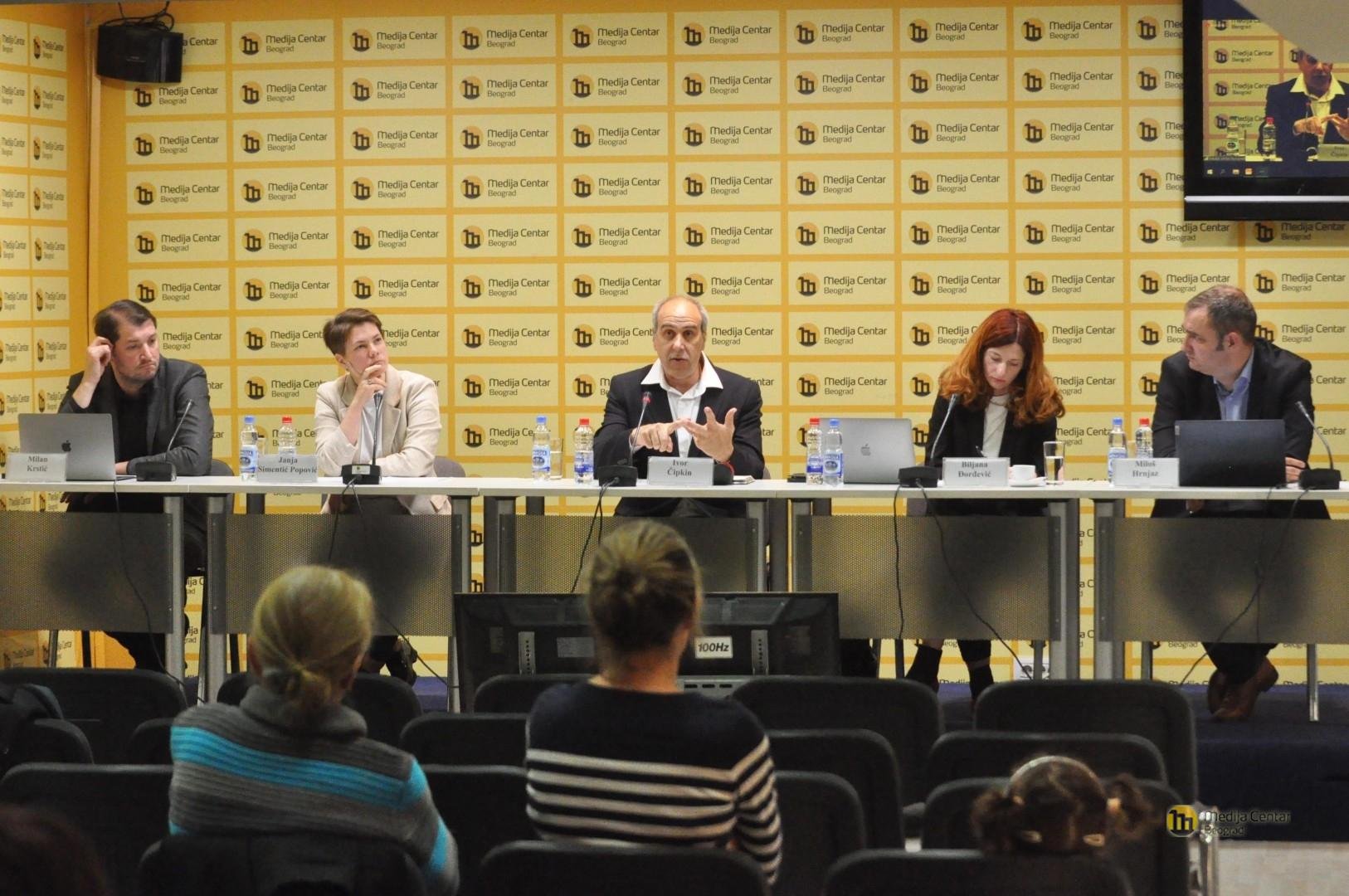Одржана промоцијa студије: The end of South Africa? Contemporary South Africa and the Politics of Self-determination (EN)
У Медија центру одржана је промоција студије The end of South Africa? Contemporary South Africa and the Politics of Self-determination. Осим аутора студије и оснивача Београдског међународноправног круга, Милоша Хрњаза и Јање Симентић Поповић, своја запажања о значају студије сумирали су и Ивор Чипкин (New South Institute, Јужна Африка), Биљана Ђорђевић (Универзитет у Београду – Факултет политичких наука) и Милан Крстић (Универзитет у Београду – Факултет политичких наука).
Истакавши глобални значај изучавања политике самоопредељења у Јужној Африци, Чипкин је упозорио на изазове који се јављају приликом њене примене, у првом реду на питање способности демократија да поставе сопствена ограничења. С друге стране, Симентић Поповић указала је на различите фазе развоја самоопредељења као политичког процеса и као норме међународног права, током којих су се искристалисале две важне димензије самоопредељења – спољашња, повезана с процесом деколонизације и стварањем нових независних држава, и унутрашња, којом се наглашава право народа да живе унутар сопствених политичких заједница.
Питање ко се може сматрати „народом”, носиоцем права на самоопредељење, из перспективе политичке теорије проблематизовала је Ђорђевић, док је на могућност политичких (зло)употреба принципа самоопредељења упозорио Хрњаз, упоређујући притом случајеве Југославије и Јужне Африке. На крају, питање употребе језика самоопредељења у различитим политичким околностима и од стране различитих политичких актера анализирао је Крстић, приказавши на примеру Косова својеврсну „табуизацију” концепта самоопредељења.
The study The end of South Africa? Contemporary South Africa and the Politics of Self-determination was presented at the Media Center. Ivor Chipkin (New South Institute, South Africa), Biljana Đorđević (University of Belgrade - Faculty of Political Sciences) and Milan Krstić (University of Belgrade - Faculty of Political Sciences) took part at the presentation, apart from the authors of the study and the founders of the Belgrade International Law Circle, Miloš Hrnjaz and Janja Simentić Popović.
Stressing the significance of analyzing the politics of self-determination in South Africa worldwide, Chipkin warned of the challenges arising during its implementation – first of all, the question of the ability of democracies to set their own limits. On the other hand, Simentić Popović pointed out the different phases of the development of self-determination as a political process and as a norm of International Law, during which two important dimensions of self-determination were imaged – the external one, connected with the process of decolonization and the creation of newly independent states, and internal one, related to the right of peoples to live within their own political communities. From the perspective of political theory, Đorđević problematized the question of who can be considered as a 'people' – the addressee of the right to self-determination. At the same time, Hrnjaz warned about the possibility of political (mis)use of the principle of self-determination, comparing the cases of Yugoslavia and South Africa. Finally, Krstić analyzed the issue of the use of the language of self-determination in different political contexts and from different political actors, giving an example of Kosovo as a kind of 'tabooing' of the concept of self-determination.

